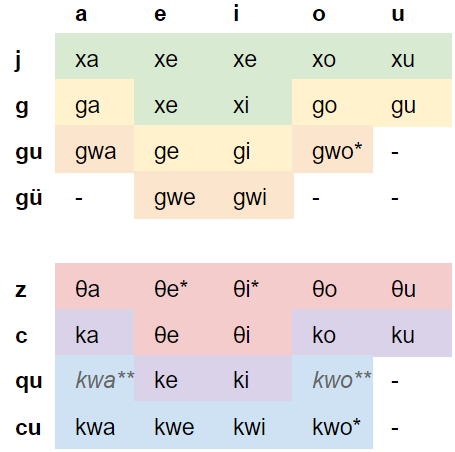I want to write a software program that will "Americanize" the pronunciation of Spanish text (using Mexican pronunciation) so that it is easier for English speakers learning Spanish to be reminded of how to pronounce the words.
For many letters (b, d, f, etc.) no changes are needed.
For others (vowels, for instance) the equivalent sound is consistent.
But in a couple of cases, the letter can be pronounced differently (c and g).
Here is what I have in mind (remember, Mexican pronunciation of Spanish is what I'm looking for):
a = ah
c = ? (s or k)
e = a
g = ? (g or h)
h = [silent - nothing]
i = ee
j = h
ll = y
ñ = ny
u = oo
q = k
y = ee (if standalone, as in " y ")
z = s
Are there any rules I could build into the software that would enable me to know when "c" is to be pronounced as "s" and when as "k"?
Similary, are there any rules I could build into the software that would enable me to know when "g" is to be pronounced as "g" and when as "h"?
Some time later, I wrote a programming tip that incorporates some of this knowledge in A Snippet that Transforms Spanish Text into Simple American English Phonetics.

